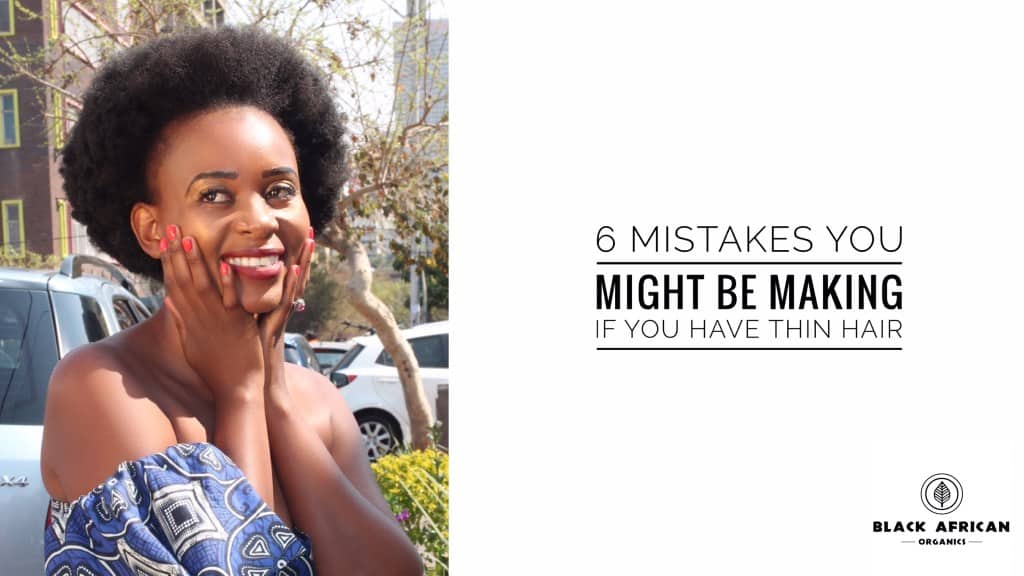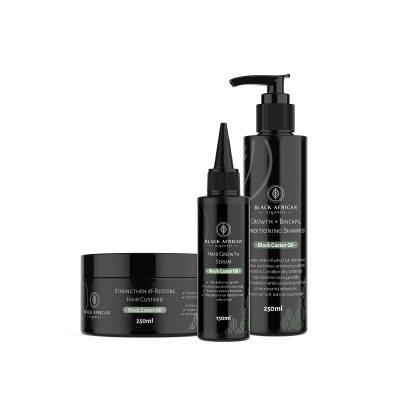6 Mistakes You Might Be Making If You Have Thin Hair

Thin hair can be annoying and difficult to manage. While we know certain diseases, medications, age, hormones and genes—factors we have little to no control over—are the biggest culprits behind hair loss and thinning hair, experts say there are things we do on a daily basis that are also making our hair more prone to damage, breakage and fallout. Among the biggest sabotage is Stress and poor diet.
The combination of high levels of stress and poor nutrition can place a person at a higher risk than one of these causes alone.
But here’s the good news: You can do something about it. All it takes is making a few minor adjustments to some of your everyday habits. Below are some of the most common mistakes made by individuals with thin hair and what to do instead.
- Pulling hair back tightly (Traction Alopecia)
It can be tempting, especially when you’re in a rush to throw your hair back in a bun. But doing so can cause serious damage, especially to thin strands. Hair over stretches when it is in a tight bun, this can cause added stress on the hair and can pull out hair or break the hair.
If you need to tie it back, use a gentle scrunchie with a wide elastic band, or even a clip, but avoid anything too tight.
- Using too much hair oil
A hair oil might make your hair feel nice, but it’s not recommended for individuals with thin hair since it is typically too heavy and leads to the strands becoming flat and stuck to the scalp. We recommend using a deep conditioning treatment, to achieve healthy hair, and to avoid using hair oils when styling.
- Over washing your hair
If your hair is thin and fragile, it’s best to avoid washing it every day. The consistency of washing your hair daily can thin and dry it, making it extremely brittle.
- Not taking multivitamins that promote hair growth
Something as simple as being deficient in vitamins could cause hair loss, that’s why he recommends a hair, skin and nail vitamins, especially to those who are experiencing hair loss. Hair is often a reflection of something that is going on inside of your body and sometimes you just need to make sure you’re taking care of yourself.
- Dehydration
In addition to supplements, dehydration is another major factor that weakens the hair follicle, so you should not overlook the importance of keeping your body perfectly hydrated by ingesting 2 litres of water daily.
- Over manipulating your hair
Natural hair is fragile by nature. Fine natural hair is even more fragile. That’s why when it comes to “handling” your hair, you must be gentle. Manipulation is necessary to care for, maintain and style your hair but over manipulation will cause breakage. If your goal is to grow your hair to the longest length possible, you cannot over manipulate your strands. Continuing to do so on your natural hair will cause breakage and the sad part is it’s avoidable.
Protective styling doesn’t have to be difficult either. You can do simple styles that don’t require much manipulation. For those of us with fine natural hair, the best protective styles are easy to do and should be kept in for about a week vs protective styling for weeks on end.
6. You Need A Trim
Trimming your hair to help with growth may seem like a backwards process, but it’s one of the best things you can do for your hair. Regular trims get rid of nasty split ends and damage that lead to breakage. There’s no one rule of how often to trim but doing so at least once every season, or every 3-4 months, will refresh your ends and keep them healthy. The more you keep up with trims, the less you’ll see damage and the less hair you’ll need to cut. You may even be able to stretch the time between trims as it gets healthier.
Love your hair, and it will love you back…


